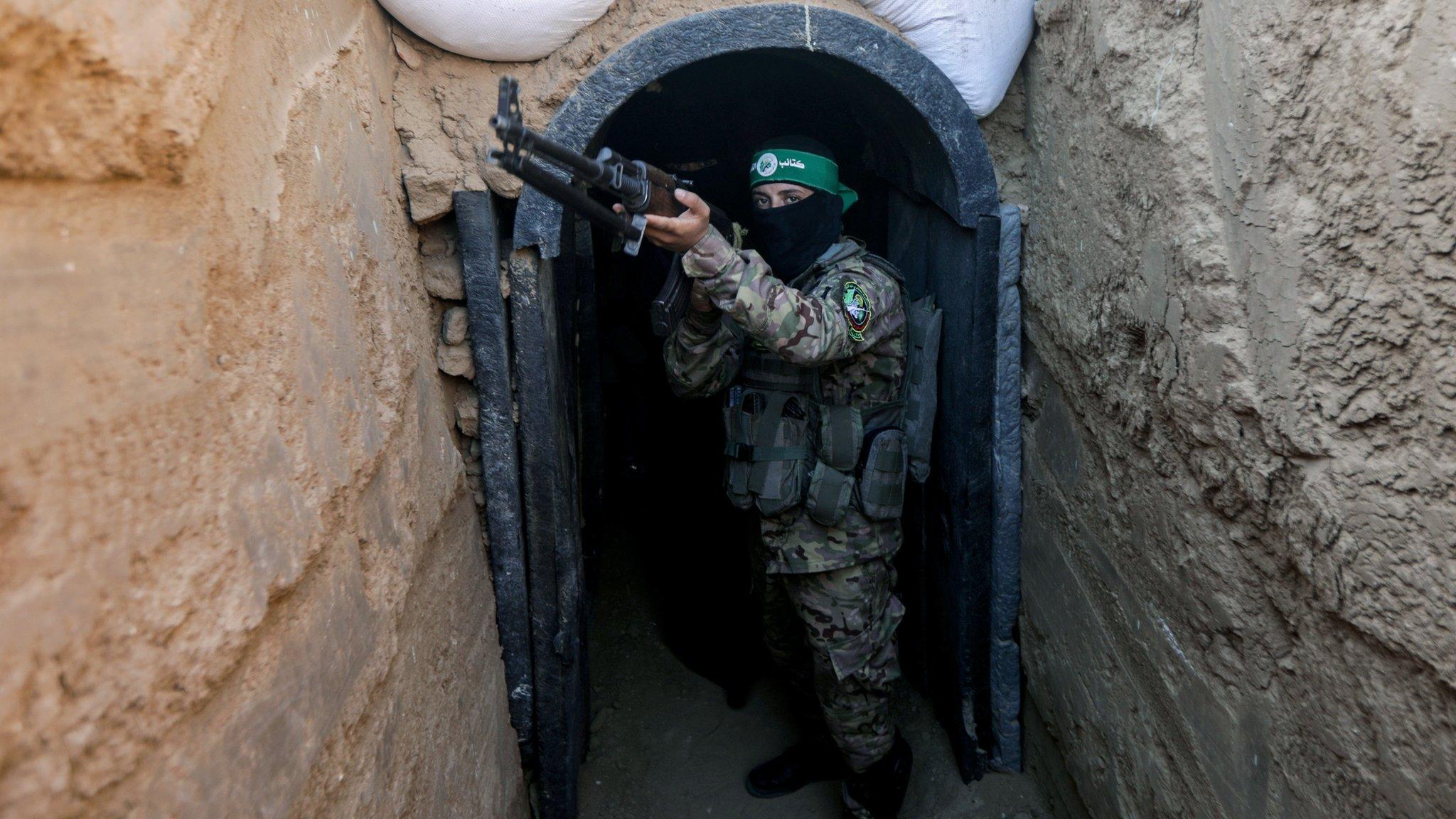Rishi Sunak promises to keep Jewish Community safe as antisemitism grows
- Published
Sunak: No place in British society for antisemitism and where it happens "it will be met with the full force of the law".
We will do "everything in our power" to keep the Jewish community safe, Rishi Sunak said, following a spate of antisemitic incidents in the UK.
He said antisemitic actions would be "met with the full force of the law".
The Metropolitan Police said there had been a "massive increase" in antisemitic incidents following Hamas' attacks on Israel nine days ago.
Later, the prime minister will address MPs on the government's response to the unfolding crisis in the Middle East.
More than 1,400 people were killed, with up to 199 kidnapped in the unprecedented incursion.
Retaliatory strikes on Gaza have killed nearly 2,700 people and Israel is preparing to launch a ground invasion in northern Gaza intended to target Hamas.
Speaking on a visit to a north London Jewish secondary school, Mr Sunak said: "I'm determined to ensure that our Jewish community is able to feel safe on our streets, that there is no place in our society for antisemitism and we will do everything we can to stamp it out and where it happens."
He said the government had given the police "all the tools, powers and guidance" they needed to police pro-Palestinian protests over the weekend.
The prime minister reiterated that support for Hamas, which is recognised as a terrorist organisation by the UK government, is illegal and could be punishable by up to 14 years in jail.
Mr Sunak said he had spoken to the Israeli prime minister about the need to "minimise the impact on civilians in Gaza".
Hamas said some 400,000 of the 1.1m people in Gaza's north have so far complied with Israel's request that they move south.
At least 17 British nationals are missing or confirmed dead following the attacks, and Foreign Secretary James Cleverly said on Sunday that as many as 10 may be being held hostage.
The government said last week it believed up to 60,000 UK nationals are in Israel or Gaza.
Mr Sunak said ministers were "doing everything we can to provide support" to the British families who have loved ones taken hostage by Hamas.
In his statement to Parliament, the prime minister will reiterate the UK's "total condemnation" of the attacks and set out the government's approach to the developing crisis, his office said.
He will outline the assistance the UK is providing to Israel, efforts to support British nationals caught up in the violence, and its response to the humanitarian situation in Gaza.
Last week, he also chaired a round-table meeting with police chiefs and announced £3m in additional funding for the Community Security Trust, a charity that works to improve the security of the Jewish community.

More on Israel Gaza war
Follow live: Latest updates
History behind the story: The Israel-Palestinian conflict
Inside Gaza: A city with a million mouths to feed
Hamas' attack on Israel: Who are the hostages taken from Israel?

Diplomatic efforts by world leaders are under way to try to stop the conflict in Gaza escalating or dragging in other countries in the region.
Mr Sunak received King Abdullah of Jordan at Downing Street on Sunday and the prime minister will hold further talks with international partners, including Middle Eastern leaders in the coming days, his office said.
Concerns continue to mount about the situation inside Gaza and conditions for people still trapped there.
Speaking to the BBC Radio 4's Today Programme from Gaza, Ghassan Abu Sittah, a British-Palestinian plastic and reconstructive doctor who normally works in the UK, said 40% of his patients were children.
"There is a phenomena we are seeing of a wounded child, with no surviving family," he said.
"Yesterday morning there was a five-year-old girl with burns, and a four year old girl with burns and a head injury and they were the only ones dug out of the family home as survivors. Every day we have cases like this".
"It's all blast injuries, which means there are these horrendous injures,with shrapnel and burns and fallen masonry, people are being dug out from underneath their homes."
In recent days, US and UK officials have been trying to arrange for the Rafah crossing on the Egyptian border - currently the only way out of the territory - to be opened to allow their citizens and dual nationals to leave.
Following a meeting with Egyptian President Abdel Fattah Sisi on Sunday, US Secretary of State Anthony Blinken said the crossing "will be reopened", although he did not provide specifics, and said that he was working with the UN and others on a "mechanism by which to get the assistance in and to get it to people who need it".
But on Monday, Israel's Prime Minister Benjamin Netanyahu has denied reports of a ceasefire to allow "foreigners out" of south Gaza and humanitarian aid in.
Hundreds of tons of aid from several countries have been held up in Egypt's Sinai Peninsula pending a deal that would allow it to be delivered via the crossing.
Tzipi Hotovely, Israel's ambassador to the UK, said Israel was "absolutely" justified in its retaliation against Hamas.
"This is war that Hamas started, and Israel will finish," she told the BBC. "Hamas won't exist in the Gaza strip. Israel can not afford a terror organisation in its borders."
Ms Hotovely added that Israel had "zero obligation to bring Gaza water", saying it was the responsibility of Hamas, amid warnings from the UN that food and water supplies are running out.
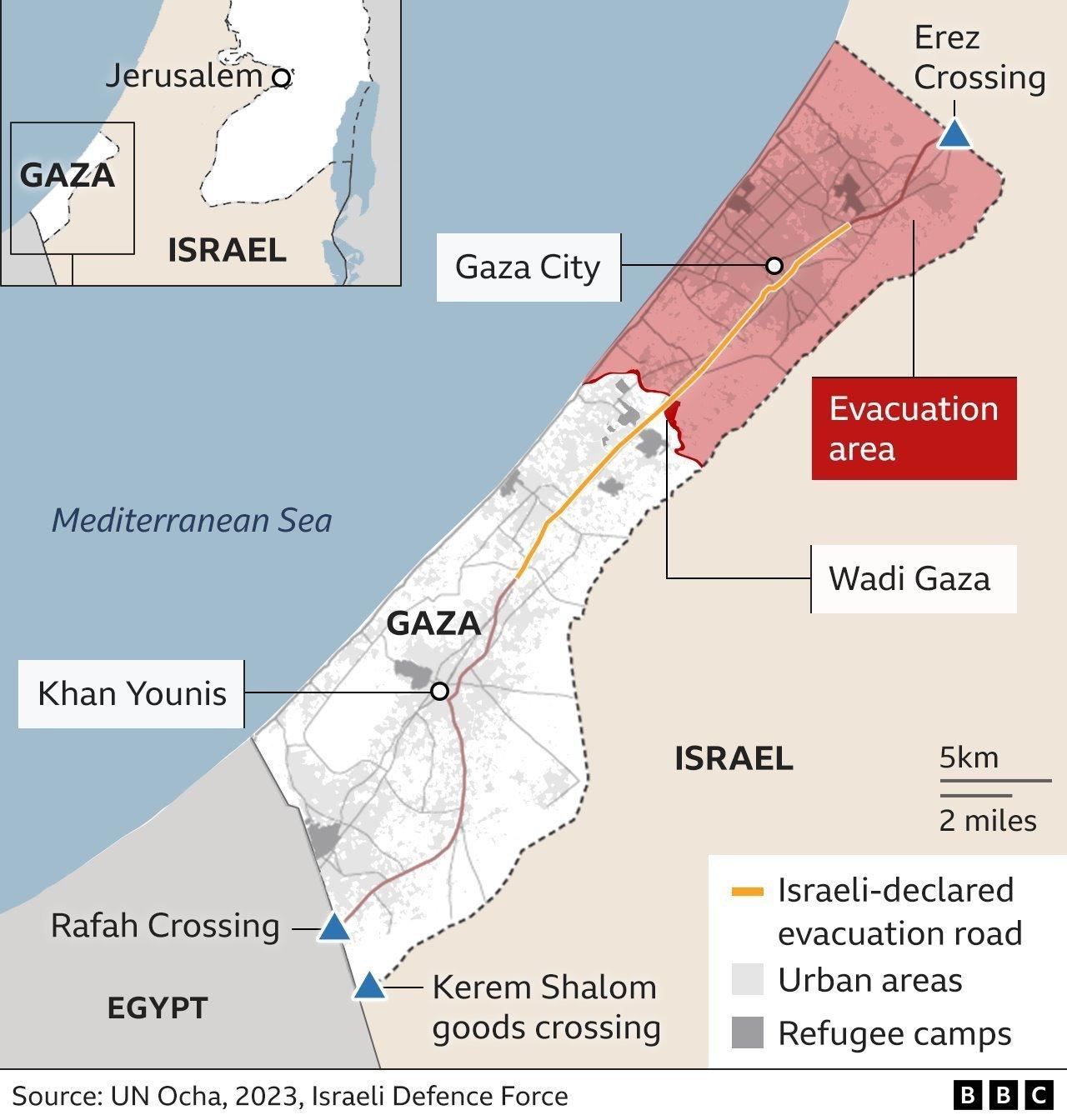

Sign up for our morning newsletter and get BBC News in your inbox.

Related topics
- Published13 October 2023
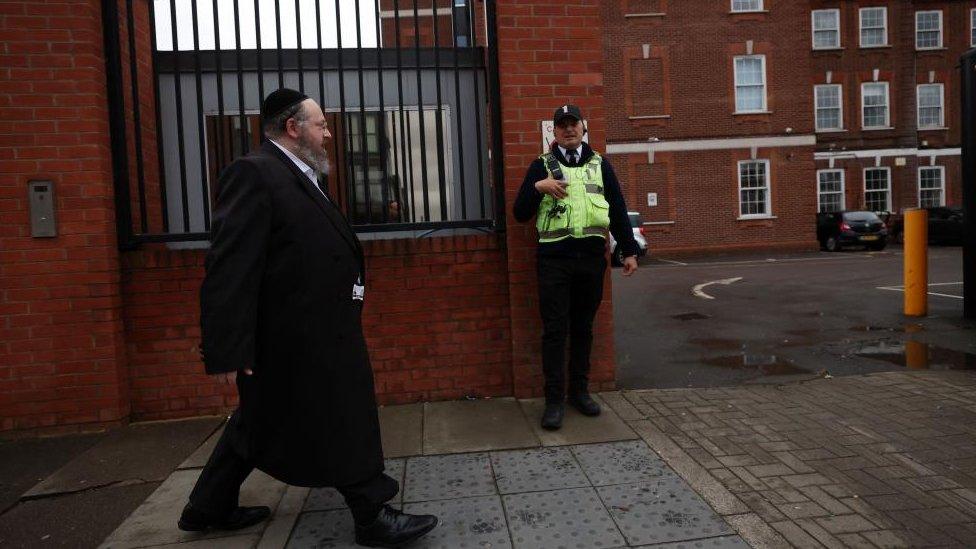
- Published15 October 2023
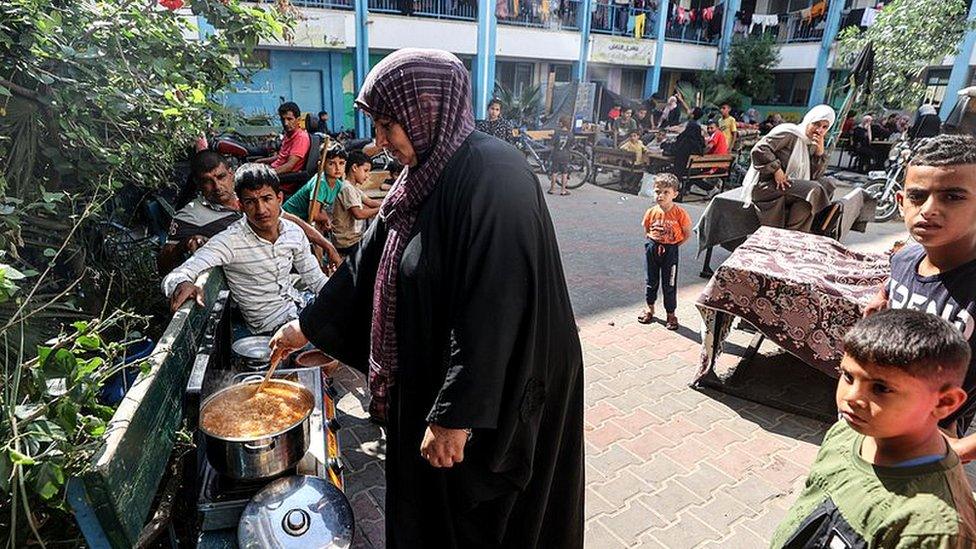
- Published15 October 2023
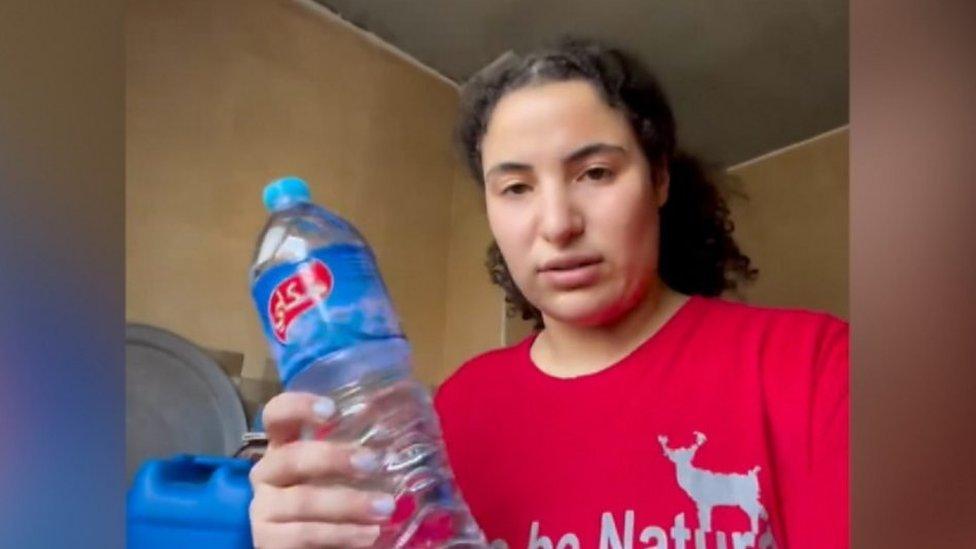
- Published13 October 2023
